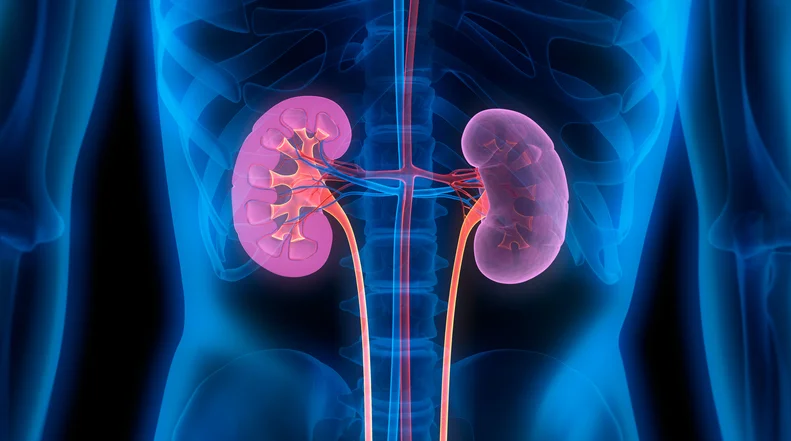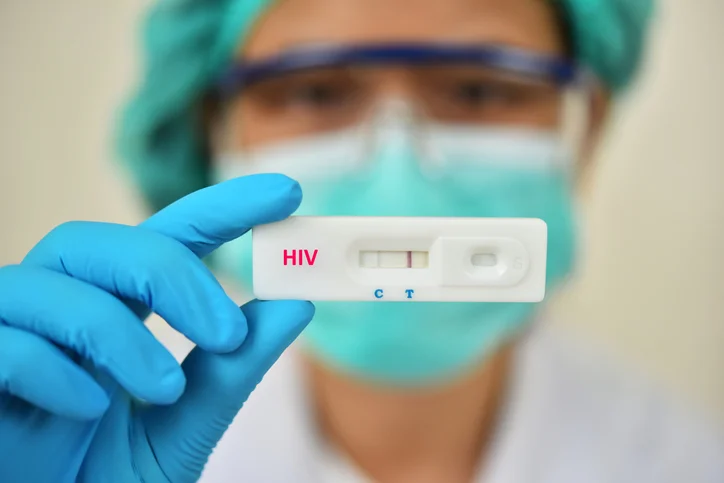You may be entitled to file a Truvada Lawsuit and we can help. Please click the button below for a Free Confidential Truvada Lawsuit Evaluation or call us toll-free 24 hrs/day for legal advice by dialing (866) 588-0600.
Table Of Contents
- Truvada Lawsuit Overview
- Latest Truvada Lawsuit Updates
- FDA Reports and Statistics
- Truvada Injuries & Side Effects
- Do You Qualify for a Truvada Lawsuit?
- Truvada Recall Information
- Statute of Limitations for Truvada Lawsuits
- FAQs
- 1. What is Truvada and how does it work?
- 2. What is the difference between TDF and TAF drugs?
- 3. When did Gilead know about Truvada’s risks?
- 4. Why is Gilead accused of withholding a safer alternative?
- 5. What should I do if I’m currently taking Truvada?
- 6. Can I join the Truvada class action lawsuit?
- 7. How much compensation could I receive from a Truvada lawsuit?
- 8. How long will a Truvada lawsuit take?
- 9. What medications interact with Truvada?
- 10. Has the FDA taken any action regarding Truvada’s safety concerns?
- Get Your Free Truvada Lawsuit Evaluation With Our Lawyers
Truvada Lawsuit Overview
As claimed by the manufacturer, Truvada (tenofovir disoproxil fumarate TDF) is one of several pre-exposure prophylaxis medications that are currently used to treat human immunodeficiency virus (HIV) and hepatitis B virus infection [1].
Lawsuits against Gilead Sciences, the manufacturer of Truvada (tenofovir disoproxil fumarate or TDF), allege that the company knew about the serious risks of kidney damage and bone density loss associated with the medication but failed to adequately warn patients.
Plaintiffs also claim that Gilead deliberately withheld a safer alternative drug called tenofovir alafenamide (TAF) to maximize profits from TDF-based medications.
In 2018, the AIDS Healthcare Foundation filed a class action lawsuit on behalf of patients who purchased Truvada and other TDF drugs.
U.S. District Judge Jon S. Tigar has allowed claims of negligence, product liability, and defective drug design to proceed against Gilead Sciences in consolidated multidistrict litigation (MDL) in the Northern District of California.
Latest Truvada Lawsuit Updates

- June 2022: The first Bellwether trial in the Truvada MDL (In Re. Tenofovir Disoproxil Fumarate Products Liability Litigation, MDL 2881) was scheduled to begin in the Northern District of California. This trial is expected to set precedents for how future cases in the litigation will proceed and potentially influence settlement discussions [2].
- May 2018: The AIDS Healthcare Foundation (AHF), the largest global AIDS organization, helped file a class action lawsuit on behalf of Devin Martinez, Ricardo Wohler, and others who purchased Truvada and other TDF drugs. This California class action lawsuit alleges that Gilead misrepresented TDF’s safety profile as early as 2001, despite FDA reprimands in 2002 and 2003 for claiming the drug had no toxicities [3].
- 2017-2018: U.S. District Judge Jon S. Tigar allowed a lawsuit against Gilead Sciences to proceed, including claims of negligence, product liability, and defective drug design. However, he dismissed allegations that Gilead intentionally hid knowledge that its TDF-based HIV drugs were “unreasonably and unnecessarily unsafe” [4].
FDA Reports and Statistics
According to FDA reports and scientific studies, Truvada and other TDF-based HIV medications have been linked to serious health complications:
- Clinical studies have shown that patients taking Truvada experienced bone mineral density (BMD) loss of 2-6% within the first two years of treatment [5].
- A large-scale study conducted by researchers at the University of San Francisco examined 10,000 patients and found a direct link between Truvada and kidney complications, including proteinuria (high levels of protein in urine), rapid decline in kidney function, Chronic Kidney Disease (CKD), and kidney failure [6].
- The iPrEx-OLE (open-label extension) study found that after 24 weeks on PrEP, patients experienced a 21% increase in urine α1m levels (a marker of kidney damage) and an 18% increase in proteinuria (95% confidence interval: 8 to 28) [7].
Among the 200 participants included in the cross-sectional iPrEx substudy, the median age was 23 years and 18% of participants were transgender. Persons of black race comprised 11% of participants, whereas Asians and Latinos comprised 27% and 54% of participants, respectively. – Stated the National Center for Biotechnology Information.
The FDA has not mandated a recall of Truvada despite these findings, and the medication remains on the market.
However, research consistently shows that TAF-based medications (the alternative that Gilead allegedly withheld) have a lower risk of kidney toxicity and less impact on bone mineral density compared to TDF-based drugs like Truvada.
Truvada Injuries & Side Effects
Truvada and other TDF-based HIV medications have been linked to several serious health complications due to their toxic effects on the kidneys and bones.
- Kidney Damage: TDF can cause acute or chronic kidney disease, resulting in impaired filtering of blood and potentially leading to kidney failure requiring dialysis or transplant. Fanconi Syndrome, characterized by abnormal protein levels in urine (proteinuria), is also a reported complication.
- Bone Density Loss: Patients may develop osteopenia (weakened bone mineral density), osteoporosis (brittle bones that fracture easily), or osteomalacia (bones breaking down faster than they can reform), resulting in increased fracture risk and long-term mobility issues.
- Lactic Acidosis: This rare but potentially life-threatening condition involves a dangerous buildup of lactic acid in the blood, which can lead to severe health complications and require immediate medical intervention.
- Liver Damage: In some cases, especially for patients with pre-existing liver conditions or Hepatitis B, TDF drugs can cause liver toxicity and worsen liver function.
Which Other HIV Medications Have Been Linked to These Side Effects?
Truvada and other tenofovir disoproxil fumarate (TDF)-based drugs—including Atripla, Stribild, Complera, and Viread—are widely used for HIV treatment and prevention (PrEP).
While effective, these medications can cause a range of mild to severe side effects that patients should be aware of.
Understanding how these symptoms progress and the key risk factors can help individuals take proactive steps in managing their health while on these medications.
Do You Qualify for a Truvada Lawsuit?
You may qualify for a Truvada lawsuit if:
- You took Truvada, Atripla, Complera, Stribild, or Viread for HIV treatment or prevention (PrEP).
- You developed serious kidney conditions such as kidney disease, kidney failure, or Fanconi Syndrome.
- You suffered bone density loss resulting in osteoporosis, fractures, or other bone-related complications.
- You were not adequately warned about these risks by the manufacturer.
- Your doctor was not informed about safer alternatives (such as TAF-based drugs like Descovy).
Evidence Required for a Truvada Lawsuit
To build a strong case, you’ll need to gather:
- Medical Records: Doctor’s records confirming you were prescribed Truvada or another TDF-based drug, lab results showing kidney issues (elevated creatinine, proteinuria, decreased eGFR), and bone scans indicating osteopenia or osteoporosis.
- Prescription History: Pharmacy records showing Truvada or other TDF drug prescriptions and duration of use.
- Hospital Records: Documentation of hospitalizations or emergency room visits related to kidney problems or bone fractures.
- Personal Documentation: Journal entries tracking symptoms and side effects, and communication with doctors regarding your concerns about kidney or bone health.
Damages You Can Recover
If your Truvada lawsuit is successful, you may be entitled to compensation for:
- Medical Expenses: Coverage for all current and future medical treatments related to kidney damage or bone density loss, including dialysis, kidney transplants, medications, and surgeries.
- Lost Wages: Compensation for income lost due to inability to work while receiving treatment or due to permanent disability.
- Pain and Suffering: Damages for physical pain and emotional distress caused by injuries and their impact on your quality of life.
- Punitive Damages: Additional compensation that may be awarded if it’s determined that Gilead Sciences acted with gross negligence in withholding a safer alternative and failing to warn about risks.
Truvada Recall Information
As of April 2025, Truvada has not been recalled and remains available on the market. Despite the substantial evidence linking the drug to serious kidney and bone injuries, the FDA has not mandated a recall of the product.
Patients currently taking Truvada are advised to consult with their healthcare providers about alternative treatment options, including newer TAF-based medications that may offer similar efficacy with reduced risk of kidney and bone complications.
However, patients should not discontinue use without medical supervision, as stopping HIV medication abruptly can have serious health consequences, particularly for those who also have Hepatitis B.
The lack of a recall despite ongoing litigation highlights the complex balance between ensuring access to life-saving HIV medications and addressing serious safety concerns associated with these drugs.
Statute of Limitations for Truvada Lawsuits
The time limit to file a Truvada lawsuit varies by state but typically ranges from 1-3 years from when you discovered or reasonably should have discovered that your injury was related to Truvada use.
This “discovery rule” is particularly important in Truvada cases, as many patients were not aware of the connection between their health issues and the medication until recent scientific studies and lawsuits brought these risks to light.
Some states have specific statutes of limitations for product liability or pharmaceutical cases that may differ from personal injury timeframes. Additionally, if you were a minor when prescribed Truvada, different timeframes may apply, often extending the period during which you can file a claim.
Given these complexities, it’s crucial to consult with an attorney as soon as possible if you believe you may have a claim, as waiting too long could permanently bar you from seeking compensation.
Related Article: What is a Design Defect?
FAQs
Get Your Free Truvada Lawsuit Evaluation With Our Lawyers
Time is limited to pursue legal action against Gilead Sciences for injuries related to Truvada and other TDF-based HIV medications.
Most states only allow 1-3 years from the date you discovered or should have discovered the connection between your health issues and Truvada use to file a claim. Once this statute of limitations expires, you may permanently lose your right to seek compensation.
At Schmidt & Clark, LLP, we offer:
- Free, confidential consultations to evaluate your case
- No upfront costs or fees for our legal services
- Payment only if we win your case and secure compensation
- Specialized experience in pharmaceutical litigation against major drug companies
Free Case Evaluation: Again, if you suffered bone loss or another injury after taking Truvada or other dangerous drugs, you should contact our law firm immediately. You may be entitled to a settlement by filing a suit and a Truvada Lawsuit Attorney can help.
References:
- https://www.cdc.gov/stophivtogether/hiv-prevention/prep.html
- https://thesentinelgroup.com/who-is-behind-the-truvada-lawsuit/
- https://www.aidshealth.org/2018/05/gilead-lawsuits-california-hiv-patients-file-class-action-and-personal-injury-cases-over-key-hiv-drug/
- https://www.courthousenews.com/gilead-must-stand-trial-over-defective-hiv-drug-claims/
- https://clinicalinfo.hiv.gov/en/drugs/emtricitabine-tenofovir-disoproxil-fumarate/patient
- https://www.ucsf.edu/news/2012/09/98692/study-underscores-truvadas-potency-preventing-transmission-hiv
- https://misuse.ncbi.nlm.nih.gov/error/abuse.shtml

 Published by
Published by 


